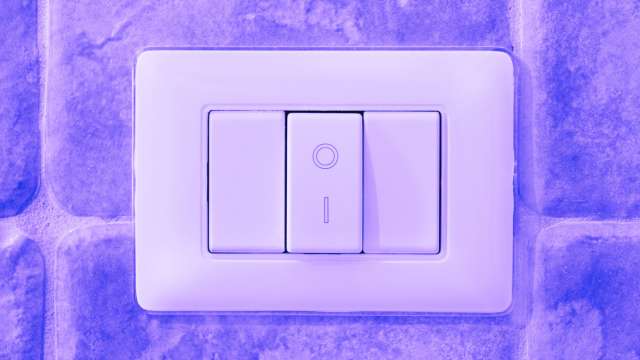Unlocking Your Inner Strength: A Comprehensive Guide to Self-Confidence

Hey there! Ever found yourself wishing you could bottle up that feeling of “I’ve got this!” and take a sip whenever you need it? Well, you’re not alone. In this guide, we’re going to dive deep into the world of self-confidence, exploring what it really means, why it matters so much, and most importantly, how you can boost it in practical, effective ways.
What Is Self-Confidence, Anyway?
Self-confidence is like your inner cheerleader. It’s that positive belief in your abilities, qualities, and judgment. When you’re confident, you trust yourself to handle life’s challenges and opportunities. It’s not about being perfect or fearless – it’s about believing in yourself, even when things get tough.
But here’s the kicker: self-confidence isn’t a fixed trait. It’s more like a muscle that you can strengthen over time. And just like building physical strength, it takes practice and the right techniques.
The Science Behind Self-Confidence
Psychologists have been studying self-confidence for decades, and their findings are fascinating. Self-confidence is closely related to self-efficacy, a concept introduced by psychologist Albert Bandura. Self-efficacy is your belief in your ability to succeed in specific situations or accomplish a task.
Research shows that self-confidence is influenced by a combination of factors:
- Past Experiences: Your successes and failures shape your confidence.
- Vicarious Experiences: Seeing others succeed can boost your own confidence.
- Social Persuasion: Encouragement from others can influence your self-belief.
- Emotional States: Your mood and physical state affect your confidence levels.
Understanding these factors can help you identify areas where you can work on building your confidence.
Related: Dreaming of Abandonment
Get free Dream Interpretation by using our Dream App
Why Does Self-Confidence Matter?
Before we jump into the how-tos, let’s talk about why self-confidence is such a big deal:
- Better Performance: Research shows that confident people often perform better in work and personal life. A study published in the Journal of Personality and Social Psychology found that individuals with higher self-confidence set higher goals for themselves and were more persistent in achieving them.
- Improved Relationships: When you value yourself, you tend to form healthier relationships. Confident people are more likely to set boundaries, communicate effectively, and attract positive connections.
- Resilience: Confidence helps you bounce back from setbacks more easily. A study in the Journal of Adolescence found that adolescents with higher self-confidence were better able to cope with stress and adversity.
- Reduced Anxiety: A healthy dose of self-confidence can lower stress and anxiety levels. Research in the Journal of Personality Assessment showed that individuals with higher self-confidence reported lower levels of social anxiety.
- Career Success: Confident employees are more likely to take on leadership roles and advance in their careers. A study in the Journal of Vocational Behavior found a strong correlation between self-confidence and career advancement.
- Better Decision-Making: When you trust yourself, you’re more likely to make decisions that align with your values and goals. This leads to greater life satisfaction in the long run.
- Positive Self-Image: Self-confidence contributes to a more positive self-image, which can improve overall mental health and well-being.
The Self-Confidence Spectrum: Finding the Right Balance
It’s important to note that self-confidence exists on a spectrum. On one end, we have low self-confidence or self-doubt, which can hold us back from reaching our potential. On the other end, there’s overconfidence, which can lead to poor decision-making and interpersonal problems.
The goal is to find a healthy middle ground – what psychologists call “optimal confidence.” This is where you have a realistic assessment of your abilities and a strong belief in your capacity to learn and grow.
Tips for Boosting Your Self-Confidence
Now, let’s get to the good stuff. How can you build that self-confidence muscle? Here are some research-backed tips:
Embrace the Power of Positive Self-Talk
Remember that inner voice that sometimes puts you down? It’s time to make it your biggest fan. Psychologists call this “cognitive restructuring.” Start by catching negative thoughts and reframing them positively. Instead of “I can’t do this,” try “This is challenging, but I’m learning and improving.”
Technique: Keep a thought journal for a week. Write down negative self-talk and practice reframing these thoughts into positive, supportive statements.
Set Realistic Goals and Crush Them
Nothing boosts confidence like achievement. Set small, attainable goals and celebrate when you reach them. This creates a positive feedback loop that reinforces your belief in your abilities.
Technique: Use the SMART goal-setting framework (Specific, Measurable, Achievable, Relevant, Time-bound) to set clear, motivating goals.
Fake It ‘Til You Make It (But Make It Authentic)
There’s science behind the “fake it ’til you make it” advice. Research on “embodied cognition” suggests that your body posture can influence your mental state. Stand tall, make eye contact, and smile – your brain will start to believe you’re confident.
Technique: Practice “power poses” for two minutes before challenging situations. Research by social psychologist Amy Cuddy suggests this can increase confidence and reduce stress.
Learn New Skills
Competence breeds confidence. Pick up a new hobby or skill. As you improve, you’ll see tangible evidence of your capabilities, boosting your overall self-confidence.
Technique: Commit to learning one new skill every month, no matter how small. It could be cooking a new dish, learning a few phrases in a new language, or mastering a new software tool.
Practice Self-Compassion
Be kind to yourself. Studies show that self-compassion is strongly linked to confidence and emotional resilience. Treat yourself with the same kindness you’d offer a good friend.
Technique: When you make a mistake or face a setback, ask yourself, “How would I comfort a friend in this situation?” Then, offer yourself the same compassion.
Surround Yourself with Positivity
Your environment shapes you. Spend time with supportive, positive people who believe in you. Their confidence can be contagious!
Technique: Conduct a “relationship audit.” Identify relationships that drain your confidence and those that boost it. Make a conscious effort to spend more time with positive influences.
Face Your Fears (in Small Steps)
Avoiding what scares you might feel safe, but it can chip away at your confidence. Start small and gradually face your fears. Each step forward is a confidence booster.
Technique: Create a “fear ladder.” List your fears from least to most challenging. Start by facing the easiest one and gradually work your way up.
Take Care of Your Physical Health
Exercise, eat well, and get enough sleep. Physical health and mental well-being are closely linked. When you feel good physically, your confidence often follows suit.
Technique: Establish a morning routine that includes physical activity, even if it’s just a 10-minute walk. This sets a positive tone for the day and boosts your mood.
Celebrate Your Strengths
Often, we focus so much on our weaknesses that we forget to acknowledge our strengths. Take time to recognize and appreciate what you’re good at.
Technique: Create a “strengths journal.” Each day, write down one thing you did well or a strength you used. This helps build a more balanced self-image.
Practice Mindfulness
Mindfulness can help you stay grounded in the present moment, reducing anxiety about the future or regrets about the past. This calm state of mind can significantly boost your confidence.
Technique: Try a 5-minute daily meditation focusing on your breath. Apps like Headspace or Calm can guide you through the process.
Dress for Success
While it might seem superficial, how you dress can affect how you feel about yourself. Wear clothes that make you feel comfortable and confident.
Technique: Identify your “power outfit” – clothes that make you feel your best. Wear them during important events or when you need a confidence boost.
Volunteer
Doing good for others can give you a sense of purpose and boost your self-esteem. It reminds you of your value and the positive impact you can have on the world.
Technique: Commit to one act of kindness or volunteer activity each week. It could be as simple as helping a neighbor or volunteering at a local charity.
Related: How Your Financial Health Shapes Your Dream World
Overcoming Common Confidence Hurdles
Even as you work on building your confidence, you might encounter some common obstacles. Here’s how to tackle them:
- Imposter Syndrome: This is the feeling that you’re a fraud, despite evidence of your competence. Remember, even highly successful people experience this. Acknowledge your achievements and the hard work that led to them.
- Comparison Trap: In the age of social media, it’s easy to fall into the comparison trap. Remember, you’re seeing others’ highlight reels, not their behind-the-scenes. Focus on your own progress, not others’ perceived success.
- Perfectionism: Striving for perfection can paralyze you and erode confidence. Embrace the concept of “good enough” and view mistakes as learning opportunities.
- Fear of Failure: Reframe failure as a stepping stone to success. Every setback provides valuable lessons that contribute to your growth and ultimate success.
The Role of Self-Confidence in Different Life Domains
Self-confidence plays a crucial role in various aspects of life:
- Professional Life: Confidence can help you take on new challenges, speak up in meetings, and pursue career advancements.
- Relationships: Confident individuals tend to have healthier, more fulfilling relationships. They’re better at communicating their needs and setting boundaries.
- Personal Growth: When you believe in yourself, you’re more likely to pursue personal development opportunities and step out of your comfort zone.
- Health and Wellness: Confidence can motivate you to take better care of your physical and mental health, leading to improved overall well-being.
The Journey of Self-Confidence
Remember, building self-confidence is a journey, not a destination. There will be ups and downs, and that’s perfectly normal. The key is to keep moving forward, celebrate your progress, and be patient with yourself.
Start by implementing one or two of these strategies and gradually incorporate more as you feel comfortable. Pay attention to how your confidence grows over time. You might want to keep a confidence journal to track your progress and reflect on your experiences.
Most importantly, be kind to yourself throughout this process. Building self-confidence takes time and effort, but the rewards – in your personal life, your relationships, and your career – are immeasurable.
So, are you ready to unlock your inner strength? Start with one small step today. Your future confident self is cheering you on! Remember, you’ve got this. And with each step you take on this journey, you’re proving it to yourself more and more. Here’s to your growing confidence and all the amazing things it will help you achieve!






